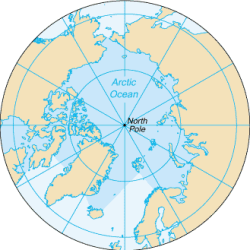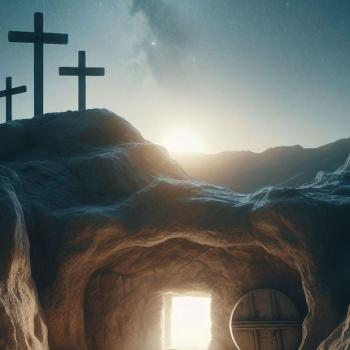Ironically, the stories of "Juha" highlight how Muslim culture is not devoid of humor. The comedic protagonist "Juha" as known in the Arab world, "Hoja" in Turkish speaking communities, "Nasseruddin" in Persian culture, still holds a special place in Arabic, Persian, and Turkish literature, despite being about a thousand years old. Juha operates as a central character who has traveled many lands from North Africa to Central and Southwest Asia; he's a traveling man who epitomizes dramatic irony, knowing something that the audience might not know. History depicts him as both a wisecracking man appearing as a fool and looking for short cuts in sophisticated society. Perhaps it is no wonder that Muslim-American comics are emerging in different parts of the country orating tales of humor as they travel in the U.S. and abroad.
I had the opportunity to ask each comic numerous questions about their journeys away from home and about "home." Although their responses differentiated their comic styles, tickled my funny bone, and offered great advice for rising comics, their responses elicited more questions about the direction of comedy and its growing potential to deliver stronger social impact.
Many of my writer friends believed that approaching the subject of comedy among Muslims would balloon into a series of entertaining interviews. Entertaining, yes, but not because the interviews provided a non-stop laugh factory. Instead, interviewing the comics became entertaining because each had undergone a different quest and faced several challenges. Yet, they continue to push the finishing line further and further away as they comment on the mundane and pivotal experiences.
Muslim-American Comedians Add "Arab-issh" to Urban Dictionary
Comedians challenge and redefine identity through comedy. Preacher, Mo'Na, Azhar, Dean, Khaled, Mohamed, and Jameeleh explore socio-cultural, or socio-religious, ethno-regional, and awkward relationship-religion moments. (Note: For a great relationship-religion example, see Youtube's clip of Khaled the Comic drawing on the ham sandwich analogy.) The result: each comic analyzes these moments and transposes them into material that warrants more than just gut-wrenching laughter. Comedy often provokes further thought. Comedy provokes both critics and followers. Comedy tests censorship. Comedy tests the comic's ability to merge high art with everyday things. Often times, as Mo'Na explained to me, "the joke-telling resembles an art form; it's not just telling a funny story, but getting you to think about how to look at the world."
Preacher noted how his routines attract and address diverse audiences as he comments on "the explosion of the Skittles factory" in a D.C. performance. Similarly, other comics share in the upward increase of diversity onstage and offstage. For example, Mo'Na collaborated with Khaled the Comic to produce the show, "Arab-issh Comedy," which is based in Chicago and includes Arabs, Middle Easterners, and other minorities in their lineup. The Arab-issh production results from the comedians' descriptions of the common stereotypes, awkward profiling experiences, and misnomers coming from a post-9/11 experience in the U.S. for Muslims and people of Middle East, Southwest, and South Asian descent.
Many Americans are trying to categorize those who typically check "Other" on census forms, only to conflate one particular identity with another. The result is not just a comedy of errors, but an ongoing experience of second-generation Americans with Muslim roots laughing at the new "branding" of "Arab-issh." Look up "Arab-issh" on http://www.urbandictionary.com and see how the term itself claims a place in American mainstream culture and speech:
Arab-issh is the next generation of comedians calling the MidEast, Mediterranean, North Africa, and/or South Asia their ancestral home. These artists use comedy to discuss their lives, vision and experiences straddling two cultures while living in North America. With unique perspectives on mistaken and misunderstood identity, Arab-issh shares the scary, mundane and funny real-life situations with audiences and critics.
Arab-issh \'ar əb i-ssh\ n, adj. v, adverb
Part of owning or reclaiming an identity involves commenting on it publicly, an opportunity that standup comedians leverage to communicate with their diverse audiences. Or as Dean Obeidallah described some forms of his comedy, it is "a form of activism" and a chance for the comic to find common ground with a diverse, American audience. For example, Amer Zahr, who has a Palestinian-Muslim mother and Palestinian-Christian father, makes fun of the common Palestinian predicament when encountering Israeli security forces at the airport. He highlights the undercurrent of racism and the politics behind the census by humorously pointing out how Arabs shouldn't check off that they're ‘white' because, "[Arab-Muslims and Arab Christians] aren't taken off of airplanes because they're white." Essentially Amer notes how many hyphenated Americans (whether Arab, Persian, Indian, or the Muslim or Christian faiths) experience an unusual latitude when talking about identity and making fun of the ambiguity because many among these hyphenated Americans are not so identified until they share their identity through observational comedy. At the conclusion of a routine, Amer feels great satisfaction when ". . . . afterward, other minorities walk up to me saying, ‘You just described my life!' . . . I want people to walk out saying that!"




